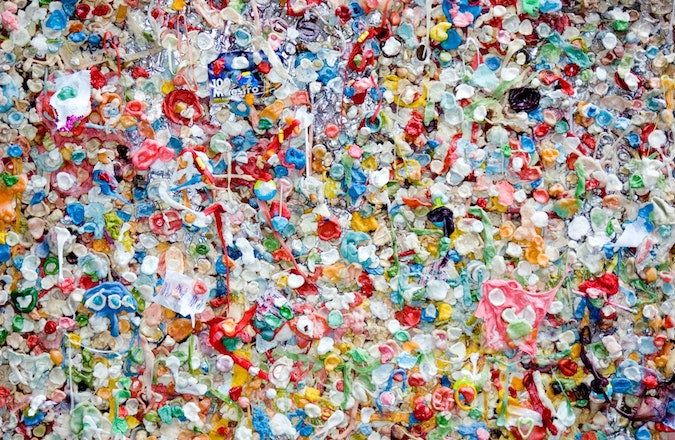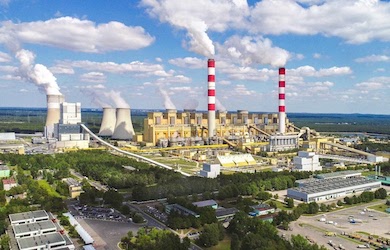Plastics are a relatively new invention in the grand scheme of things. Production of plastic has also accelerated, with National Geographic reporting [1] in 2019 that half of all plastics that have ever been manufactured were made in the previous 15 years. They have been revolutionary in medicine, technology and everyday items. However, our addiction to plastics, perhaps in particular single-use plastics, has created a significant environmental problem. Huge amounts of plastic end up in landfill, in the ocean or being burned and releasing harmful fumes.
 Figure 1: Plastic waste. [5]
Figure 1: Plastic waste. [5]
Greenpeace reports [2] that, worldwide, a truckload of plastic enters the ocean every minute.
Plastic in the ocean is eaten by sea creatures and birds, it can also cause other problems such as presenting an entanglement hazard.
Whilst in some parts of the world there seems to be a strong emphasis on recycling, the Organisation for Economic Co-operation and Development (OECD) reported [3] this year (2022) that just 9% of plastic around the world is successfully recycled.
An Unlikely Hero
However, Euronews has reported [4] an unusual potential solution, namely ‘superworms’ (or, formally, a type of beetle larvae with a Latin name of some kind).
A research team in New Zealand has found that these worms can survive, and gain weight, eating nothing but polystyrene.
It seems these worms have enzymes in their digestive system that can destroy the plastic they’ve eaten. The hope is that this enzyme can be grown in a lab and scaled up for use in dedicated recycling plants.
Dealing with Plastic
In practice, dealing with the plastic problem is likely to require a multi-faceted approach if it is to succeed. In large part, this is likely to come down to simply manufacturing less plastic.
Recycling efforts will no doubt continue, along with strategies to manufacture more environmentally friendly types of plastic. Discoveries like the enzymes from superworms could play a role in the battle.
For more on tackling the plastic problem, click here and here.
About Pager Power
Pager Power undertakes technical assessments for developers of renewable energy projects and tall buildings. For more information about what we do, please get in touch.
References
[1] Parker, L (2019), The world’s plastic pollution crisis explained (link), National Geographic
[2] Greenpeace (author and date not listed, accessed June 2022), Plastic pollution (link), Greenpeace
[3] Lang, A (2022), Global Plastic Waste Doubled in Two Decades, OECD Report Finds, (link), Resource
[4] Elton, C (2022), Plastic-munching ‘superworms’ could be a scalable solution to tackling global waste (link), Euronews
[5] Marc Newbury (December 2019) on Unsplash.com. Last accessed on 15th June 2022. Available at: https://unsplash.com/photos/9vcEn3BJyy8



